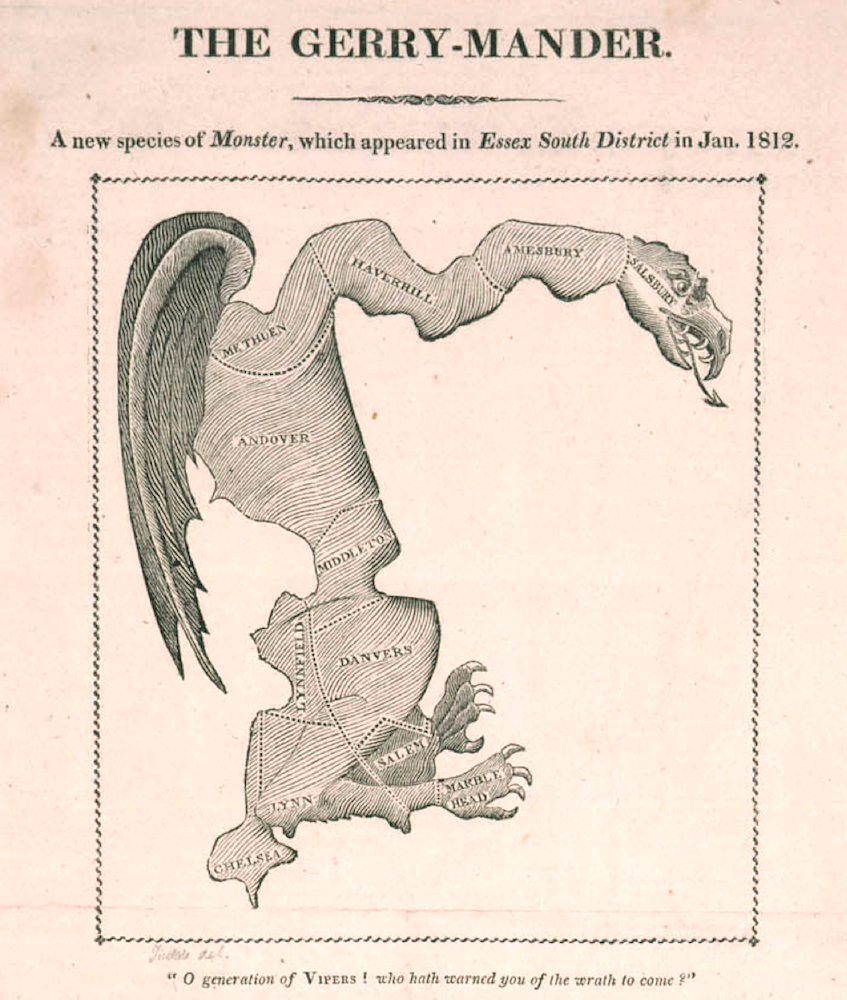Radically Centered: JRW Team Victim of Chicago Politics
In changing the boundaries for personal gain, the adults behind JRW took a play out of politics to the benefit, and detriment, of the players.
This morning’s headlines about the Jackie Robinson West Little League team losing their World Series title and record came as a shock to millions of people who cheered on the group of young kids from the South Side of Chicago. Their story, the first all-African-American team to make it to the World Series final, endeared an entire nation, prompting trips to Disney World and the White House, not to mention a ticker-tape parade typically reserved for the Chicago Blackhawks (we’d list other teams, but it’s been a decade since anyone but the Hawks have earned the right to take a ride down Michigan Avenue).
Today, though, the memory of the parade, the visit with the Obamas and the photos with Mickey and Minnie have been replaced by the embarrassment of scandal, hearing the word cheater tied to their team name and their identity.
But these kids did not earn the moniker of cheater. In fact, they are the ones completely innocent in this ordeal, the victim of success brought upon by their leader’s dubious actions. Because the Little League International stripped the entire team of their honor, though, these kids will likely feel like the world is turning their backs on them, like many people do on the African-American community suffering from high crime rates, low income potential and a host of other problems they see during their daily lives.
It’s not their fault, though. The boys on JRW did nothing wrong while the adults played around with boundaries, a hard and fast rule in Little League to ensure parity in neighborhoods, much like legislative districts were designed to ensure accurate representation of the population within their neighborhoods.
Did this change anything about the tournament? No. Those kids were excellent ballplayers, overwhelming other high-quality teams from all across the region and this nation. Does this mean they are not winners? Not in the least. It does mean, however, that they were duped and thrown into this scandal because of the actions of their leaders, much like the American people were duped by their leaders when convinced that these gerrymandered districts, drawn by the legislators themselves, are for their own benefit.
 For over 200 years, elected officials in this country have been changing the boundaries to ease the election process for their friends in state legislatures and Congress. The most notorious one was when Gov. Elbridge Gerry carved up portions of Massachusetts to look like a “new species of monster” to protect his Democratic-Republican friends over Federalists in 1812, a move that created the moniker gerrymandering. Patrick Henry is often credited as the first to employ this practice to defeat James Madison in 1789. Today, this process is so pervasive that newspapers and other organizations create Top Ten lists of the most gerrymandered districts. These districts are drawn in such a way to gain advantage in the overall party makeup of a legislative body. Want to keep Democrats from taking over the State Chamber? Redistrict the legislative districts to make it harder for Republicans to lose your seats with the smallest number of majority-Democrat seats possible. Want a Democratic supermajority? Take control and redraw the map to minimize Republican-led districts.
For over 200 years, elected officials in this country have been changing the boundaries to ease the election process for their friends in state legislatures and Congress. The most notorious one was when Gov. Elbridge Gerry carved up portions of Massachusetts to look like a “new species of monster” to protect his Democratic-Republican friends over Federalists in 1812, a move that created the moniker gerrymandering. Patrick Henry is often credited as the first to employ this practice to defeat James Madison in 1789. Today, this process is so pervasive that newspapers and other organizations create Top Ten lists of the most gerrymandered districts. These districts are drawn in such a way to gain advantage in the overall party makeup of a legislative body. Want to keep Democrats from taking over the State Chamber? Redistrict the legislative districts to make it harder for Republicans to lose your seats with the smallest number of majority-Democrat seats possible. Want a Democratic supermajority? Take control and redraw the map to minimize Republican-led districts.
This kind of underhandedness, which basically assures a GOP majority in the US House for a long time coming, has led to back-room changes leading to lawsuits that are easily thrown out since the Judicial Branch has little desire to get involved in the operations of the Legislative Branch on this issue while the public cries out against party control and wants to blame hyperpartisanship on these actions, though that is likely not the issue. Instead of creating a fair chance at winning a seat based upon community demographics and political leanings, legislatures across the country create an easy win, leading to very few primaries in some of the worst states (much like Chicago’s one-party grip has led to very few Republicans challenging Democrats during the general election, leaving Democratic primary victors as the overall winner).
When surrounded by this opportunity to change the boundaries to benefit themselves, why is it any surprise that boundary alterations are creeping into other facets of our lives. JRW, a team that played their hearts out while playing into our own hearts, fell victim to this type of underhandedness. They had no idea some of their teammates lived outside the official lines since their leaders, these supposed role models, created new limits to increase their talent pool.
This failure by the Little League leaders, and the manager of the JRW team, presents an excellent microcosm of the problems that plague our political boundaries. Instead of playing by the rules, the leaders shortchanged the kids who are now left wondering what they can do to right the wrongs that have burdened them today. They aren’t losers, they aren’t cheaters and they did nothing wrong but played their best to the pride of a city and a nation. Because the adults cheated, though, they have suffered. Just like we continue to suffer because of our leaders.
Staff Blogger
Latest posts by Staff Blogger (see all)
- Corage: The Freedom to Be Where You Are - March 3, 2015
- Corage: Doing the Best I Can - February 24, 2015
- Reluctant Xtian: Ash Kicking or Why I Don’t Think Ash Wednesday is a Good Day for Peddling Religious Goods - February 18, 2015






